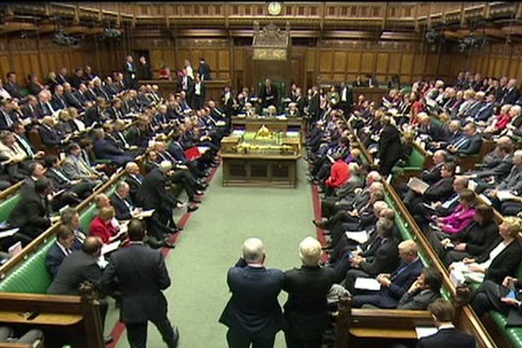Your support helps us to tell the story
From reproductive rights to climate change to Big Tech, The Independent is on the ground when the story is developing. Whether it's investigating the financials of Elon Musk's pro-Trump PAC or producing our latest documentary, 'The A Word', which shines a light on the American women fighting for reproductive rights, we know how important it is to parse out the facts from the messaging.
At such a critical moment in US history, we need reporters on the ground. Your donation allows us to keep sending journalists to speak to both sides of the story.
The Independent is trusted by Americans across the entire political spectrum. And unlike many other quality news outlets, we choose not to lock Americans out of our reporting and analysis with paywalls. We believe quality journalism should be available to everyone, paid for by those who can afford it.
Your support makes all the difference.If one party does not have a majority in parliament after an election, there are a few options available.
As in 2010, parties can try and form coalitions and agree a common policy programme. They can also agree a looser former deal called “supply and confidence” where only one party runs the government but does things in exchange for votes that stop the government falling.
The third option is a minority government.
What is a minority government?
A minority government is where the government doesn’t have more than half the seats in parliament and therefore can’t pass laws without the votes of parties not participating in the government.
How can they exist?
If a proposed government wins a confidence vote in parliament, it becomes the government. Other parties could support a government without actually joining it.
This could happen for a variety of reasons: the supporting party might think the resulting government was a better option than something else, the minority government might be the only option to form a government other than another election, or the supporters might get concessions.
Why could a minority government happen this time?
The last polls conducted before polling day show the Scottish National Party (SNP) is likely to win a lot of seats and hold the balance of power.
The SNP has said it won’t work with the Conservatives and will vote against a Tory government to put Labour in power.
But Labour has said it won’t do any deals with the Scottish National Party.
In this situation you’d have a Labour administration that relied on the SNP holding the line against the Tories. It would have to work on a vote-by-vote basis and use votes from the SNP, Liberal Democrats, Tories, or a mix, to implement its programme.
Are minority governments common?
In some countries they are very common. In Denmark there have been more minority governments since World War II than there have been single party majority governments.
This is because parties in Denmark rarely get a majority but most of them don’t like each other enough to go into coalition with one another.
The system seems to work fine - Denmark has a high quality of life and is generally thought to have well-run public services.
Has the UK ever had a minority government before?
In the 20th century Harold Wilson led a minority Labour government for seven months in 1974. He called an election and later won a small majority.
In 1996 and 1997 John Major’s government became a minority government because of defections and losses at by-elections.
Subscribe to Independent Premium to bookmark this article
Want to bookmark your favourite articles and stories to read or reference later? Start your Independent Premium subscription today.

Join our commenting forum
Join thought-provoking conversations, follow other Independent readers and see their replies
Comments